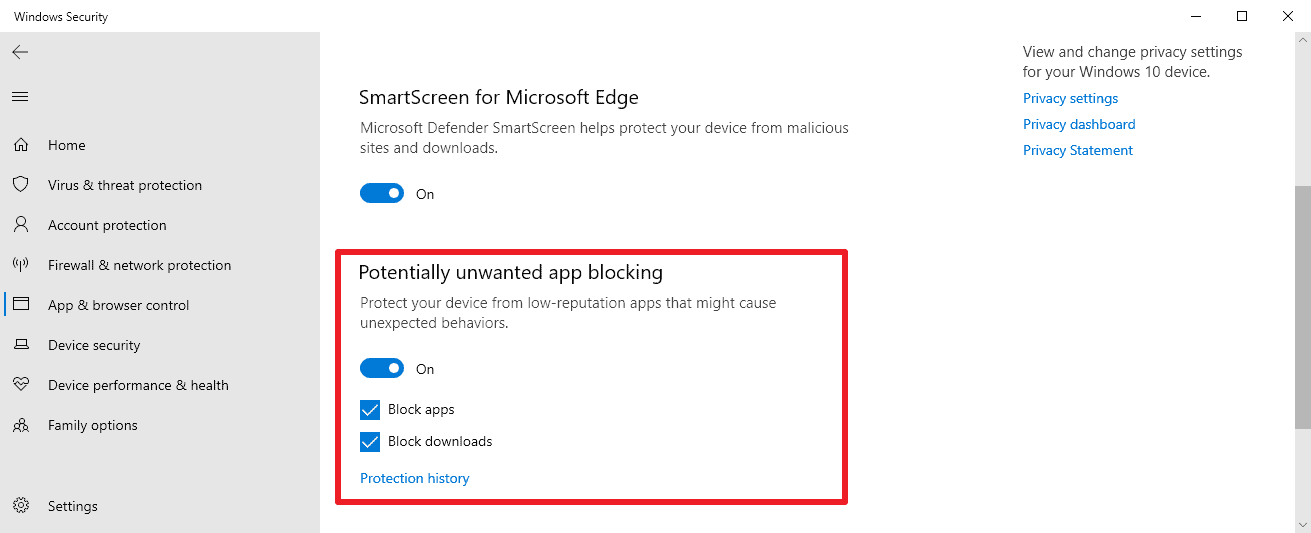Microsoft has started to turn on the Potentially Unwanted Apps (PUA) protection of Windows Defender in the company’s Windows 10 operating system.
Potentially unwanted apps “can cause your device to run slowly, display unexpected ads, or at worst, install other software which may be more harmful or annoying” according to Microsoft. Microsoft notes that these programs are not malware, but that it is usually software that is not needed or wanted.
The company introduced support for blocking PUA on Windows 10 in 2018, but users had to enable the feature using PowerShell; an option to enable or configure the protection under Windows Security was introduced in the May 2020 update for Windows 10. Still disabled at the time, users could now configure the protection under Windows Security on Windows 10 devices.
The Potentially Unwanted Apps protection will be turned on by default from August 2021 on, but only for Windows 10 users who use Windows Defender and not a third-party security solution.
Configure Potentially Unwanted Apps blocking

If you are using Windows Defender, you may check and configure the PUA protection in the following way:
- Select Start > Settings.
- Go to Update & Security.
- Select Windows Security.
- Activate the “Open Windows Security” button.
- Select App & Browser Control > Reputation-based Protection.
- Toggle Potentially unwanted app blocking to turn the feature on or off.
If turned on, select whether you want apps and downloads blocked, or just one of the two.
The same page links to the protection history. You may use it to see protection actions, including apps or downloads that were blocked by Windows’ PUA protection.
Third-party programs like Configure Defender may also be used to manage the protection and other Windows Defender features.
Windows Defender is not the only program that may protect against unwanted programs. Microsoft added PUA protection in its new Edge browser some time ago.
Closing Words
Potentially Unwanted Apps protection blocks certain programs from being downloaded or installed. Users may still unblock the programs to complete the download or installation. False positives are a common occurrence, similarly to how false positives are common in antivirus solutions, especially when it comes to new programs.
Experienced users may not get much out of PUA protections, but the same cannot be said for inexperienced users.
(via Deskmodder)
